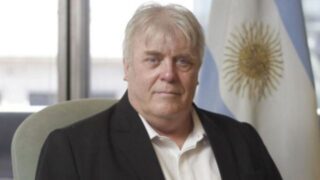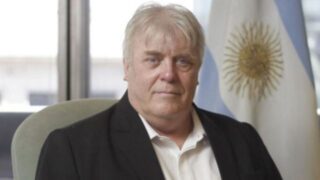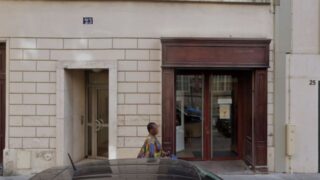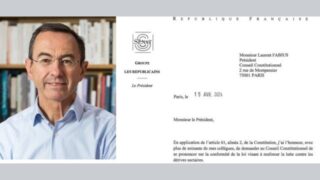From 1993 to 2000, a long criminal case tried to prove that BAYS was guilty of sexual abuses. All defendants were declared innocent.
by Massimo Introvigne
Article 4 of 5. Read article 1, article 2, and article 3.


In the early 1990s, the BAYS looked like a small but prosperous organization. When on June 5, 1992, Percowicz presented the school’s philosophy in a lecture at the Sheraton Buenos Aires Hotel & Towers, the event had been declared of “national interest” and had received the official congratulations of the Ministry of Culture and Education, the City of Buenos Aires, and several other institutions. The school’s musicians were gaining national and international recognition. Carlos Barragán and his all-BAYS team were on their way to be acknowledged as the world champions of stage magic. Others had gained awards in the artistic, business, and medical fields.
Unbeknownst to BAYS members, however, the wind of the anti-cult campaigns had started blowing over Argentina as well. The setback anti-cultists had suffered in 1990 in California, when in the “Fishman” case the theories of brainwashing had been declared as pseudo-scientific and excluded from American court cases, had persuaded them that they should now multiply their efforts in countries other than the United States. They found a favorable ground in France and in Spain. Eventually, their ideology traveled to Argentina as well.


As it often happens in cases against “cults,” the one that hit BAYS in 1994 started with a family conflict. On December 23, 1993, the stepfather of one female BAYS student claimed that she had left his home because she had been brainwashed by the school. While the stepdaughter argued that the real reason was that she was being abused by the stepfather, the man recruited other parents who claimed their daughters had been brainwashed too. Some told extraordinary tales of women compelled to have lesbian relations or work as prostitutes, and of boys sexually initiated by older women, including their own mothers. One of those who told these stories was the father of Pablo Gastón Salum, whom we met before and who is today the leading Argentinian anti-cultist. Pablo’s mother, brother, and sister remained in the school. His father said Pablo had left because he was “horrified.”
Pablo himself testified in the case and denied his father’s story. He said he had quarreled with his mother and had lost interest in the school, whose lessons he had attended since age ten, but that he had not seen anything improper there. Later, however, after further family quarrels—in one of which his brother reported he had been threatened by him with a knife—Pablo testified again, and said he had rendered a false deposition following instructions by Percowicz. He backed up his father’s story by saying that young boys in the BAYS were sexually initiated by older women, including his own mother, and added lurid details about orgies and prostitution. He claimed that the BAYS was the most dangerous “cult” operating in Argentina. Pablo’s career as an anti-BAYS “professional apostate” had started. Meanwhile, Percowicz and another thirty BAYS leaders and students had found themselves under criminal investigation.
Judge Julio César Corvalán de la Colina had to put some order in what looked like a hopeless mess of contradictory statements. It took him several years, as the case had started in 1993 and his decision was dated May 11, 2000, which was confirmed by the Court of Appeal on 28 December 2000 and by the Court of Cassation on 10 September and 28 November 2001. His was an Argentinian judgement of twenty-two years ago. Perhaps he devoted an unnecessary number of inconclusive pages to discuss whether the BAYS was a “cult” (secta), before correctly noting that operating a “cult” was not a crime under Argentinian law. He showed he did believe in brainwashing theories, based on a book with this very title, “Brainwashing” (El lavado de cerebro) by Spanish social psychologist Álvaro Rodríguez Carballeira, a book that read today looks like a not particularly memorable digest of the pre-1990 brainwashing ideology.
This makes it even more remarkable that Judge Corvalán de la Colina came to the conclusion that, although he believed brainwashing existed, the BAYS had not practiced it. He declared all the defendants innocent. The most serious crime they had been accused of was corruption of minors. Corvalán noted that the two alleged victims denied absolutely that they had been corrupted or abused, a scenario that would repeat itself in 2022. The judge regarded them as more believable than the anti-BAYS witnesses. He also found that the two declarations of Pablo Salum contradicting each other made him a highly doubtful witness, and noted that his and his father’s stories were highly conditioned by a situation of family conflict.


Psychological expert reports had confirmed that, although perhaps in some cases easily influenceable, the alleged victims, who denied having been victimized, were all mentally competent. The judge was also impressed by the fact that, after some seven years of a judicial ordeal and considerable media slandering, they had remained in the school. He wrote that theirs was a “project of life their parents probably did not approve of,” but it had been freely chosen, and that choice was protected by the Argentinian Constitution.
Confronted with obvious defeat, Pablo Salum and the anti-cult camp claimed that the decision had been the result of unusual pressures on the judge by prominent Argentinian citizens who were friends of the school (and perhaps, it was suggested, had been among the beneficiaries of the female students’ sexual favors) and American “cult apologists” always ready to defend “cults” with the help of their government. It is true that my late friend H. Newton Malony, a distinguished American psychologist who had been instrumental in causing the fall of brainwashing theories in the United States, had taken an interest in the case and traveled to Argentina. However, those who claim that Corvalán’s decision had been dictated by external influences simply had not read it.


The last thing judges who render a decision because they have been unduly influenced by others is to mention such influence. Yet, this is precisely what Corvalán did. He wrote that dozens of personalities, both Argentinian and international, who were not involved in the case, contacted him, described BAYS as a honorable and unfairly slandered organization, and asked to be heard. “In my more than long judicial career, I was never submitted to such a pressure,” Corvalán wrote. He could have derived from this that BAYS was in fact an esteemed organization, and that scholars such as Malony were concerned that brainwashing theories might be used once again as a tool for discrimination. On the contrary, Corvalán wrote that it had been mightily disturbed by these interventions—but had not let his irritation change his conclusion that the defendants were innocent.
After the judicial victory of 2000, and in fact even before, the BAYS decided to keep a low profile. In 1999, as mentioned earlier, it had decided not to admit new members. The construction of the State of Israel Avenue building and the organization of the life there continued, as did the classes in the cafeteria. One activity that was developed with success was the application of BAYS philosophy to business and the formation of corporate executives, which allowed the company B.A. to acquire prestigious clients.


On the other hand, the story of how the BAYS had been attacked and had emerged victorious from the long 1993 court case was not publicly told. One student who had two cousins among the “desaparecidos” of the military regime told me that perhaps the memories of these years haunting a generation so much marked by fear had made them reluctant to criticize the police. However, the fact that the first criminal case and its outcome were not well-known outside of the two subcultures of the BAYS members and the anti-cultists will make more difficult for BAYS to react when the second raid happened in 2022.









